
Rocket Ship Galileo, a juvenile science-fiction novel by the American writer Robert A. Heinlein, published in 1947, features three teenagers who participate in a pioneering flight to the Moon. It was the first in the Heinlein juveniles, a long and successful series of science-fiction novels published by Scribner's. Heinlein originally envisioned the novel as the first of a series of books called "Young Rocket Engineers". Publishers initially rejected the script, judging going to the moon as "too far out".

Assignment in Eternity, is a collection of four science fiction and science fantasy novellas by American writer Robert A. Heinlein, first published in hardcover by Fantasy Press in 1953. The stories, some of which were revised somewhat from their original magazine publication, were:

Charles Sheffield, an English-born mathematician, physicist and science-fiction writer, served as a President of the Science Fiction and Fantasy Writers of America and of the American Astronautical Society.
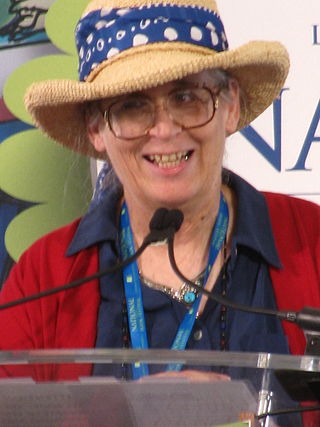
Elizabeth Moon is an American science fiction and fantasy writer. Her other writing includes newspaper columns and opinion pieces. Her novel The Speed of Dark won the 2003 Nebula Award. Prior to her writing career, she served in the United States Marine Corps.
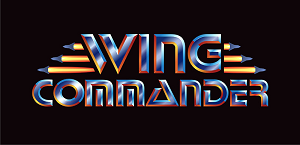
Wing Commander is a media franchise consisting of space combat simulation video games from Origin Systems, Inc., an animated television series, a feature film, a collectible card game, a series of novels, and action figures. The franchise originated in 1990 with the release of video game Wing Commander.

Donald Herod Peterson was a United States Air Force officer and NASA astronaut. Peterson was originally selected for the Air Force Manned Orbiting Laboratory (MOL) program, but, when that was canceled, he became a NASA astronaut in September 1969. He was a mission specialist on STS-6 on board Challenger. During the mission Peterson performed a spacewalk to test the new airlock and space suits. He logged 120 hours in space. Peterson retired from NASA in 1984.

John Ringo is an American science fiction and military fiction author. He has had several New York Times best sellers. His books range from straightforward science fiction to a mix of military and political thrillers. He has over seven million copies of his books in print, and his works have been translated into seven different languages.

Jody Lynn Nye is an American science fiction writer. She is the author or co-author of approximately forty published novels and more than 100 short stories. She has specialized in science fiction or fantasy action novels and humor. Her humorous series range from contemporary fantasy to military science fiction. About one-third of her novels are collaborations, either as a co-author or as the author of a sequel. She has been an instructor of the Fantasy Writing Workshop at Columbia College Chicago (2007) and she teaches the annual Science Fiction Writing Workshop at DragonCon.
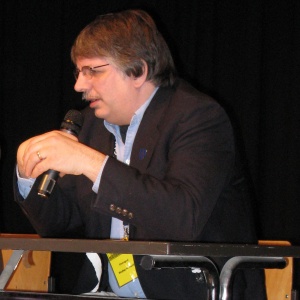
Walter H. Hunt is a science fiction novelist from Massachusetts, United States.
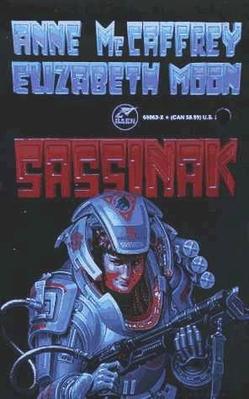
Sassinak is a science fiction novel by American writers Anne McCaffrey and Elizabeth Moon, published by Baen Books in 1990. It is the first book in the Planet Pirates trilogy and continues the Ireta series that McCaffrey initiated with Dinosaur Planet in 1978. McCaffrey wrote the second Planet Pirates book with Jody Lynn Nye, the third with Moon.
Sarah A. Hoyt is a Portuguese-born American science fiction, fantasy, mystery, and historical fiction writer. She moved to the United States in the early 1980s, married Dan Hoyt in 1985, and became an American citizen in 1988.
Joseph Robert Conroy was an author of alternate history novels.

The Stone Dogs is a science fiction novel by Canadian-American writer S. M. Stirling, the third book in the alternate history series, The Domination. It was first published in paperback by Baen Books in August 1990. It was a preliminary nominee for the 1996 Prometheus Hall of Fame Award.
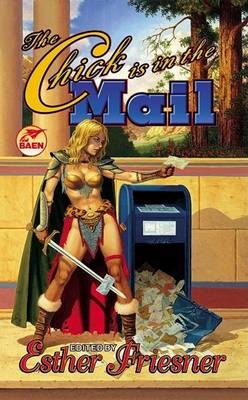
The Chick Is in the Mail is an anthology of fantasy stories, edited by Esther Friesner with the assistance of Martin H. Greenberg, with a cover by Larry Elmore. It consists of works featuring female protagonists by (mostly) female authors. It was first published in paperback by Baen Books in October 2000; a hardcover edition was issued the same year. It was the fourth of a number of similarly themed anthologies edited by Friesner.

Larry Correia is an American fantasy and science fiction writer, known for his Monster Hunter International, Grimnoir Chronicles, and Saga of the Forgotten Warrior series. He has authored or co-authored over 25 novels, has over 50 published short works, two collections of stories, and has co-edited three published anthologies.

Brad R. Torgersen is an American science fiction author whose short stories regularly appear in various anthologies and magazines, including Analog Science Fiction and Fact and Orson Scott Card's Intergalactic Medicine Show.

Unicorns! is a themed anthology of fantasy short works edited by American writers Jack Dann and Gardner Dozois, first published in 1982. Their follow-up anthology, Unicorns II, debuted ten years later in 1992.
Michael A. Rothman is an American engineer and writer of science fiction, epic fantasy, and techno thriller novels. His fiction books are generally published under the name M. A. Rothman. He holds over 1000 patents worldwide, and is one of the primary architects of the UEFI standard. He has co-authored multiple books and papers about the standard.
This is the bibliography of American fantasy and science fiction writer Larry Correia.

The Uplift Storm trilogy, also called The Uplift Trilogy is a series of novels set in David Brin's Uplift Universe. The entire trilogy is one long tale, with no gaps in the timeline between volumes. The three novels are:
















